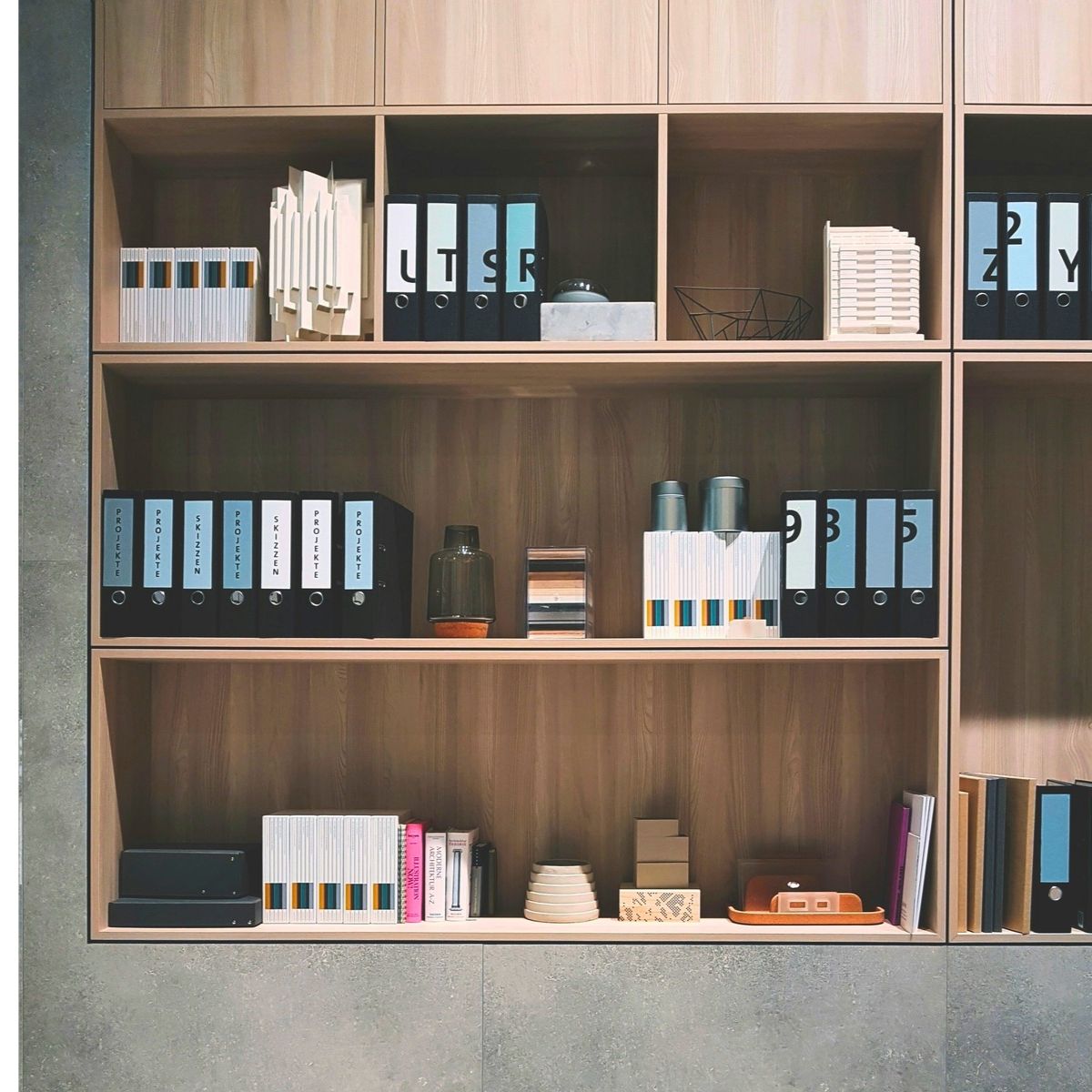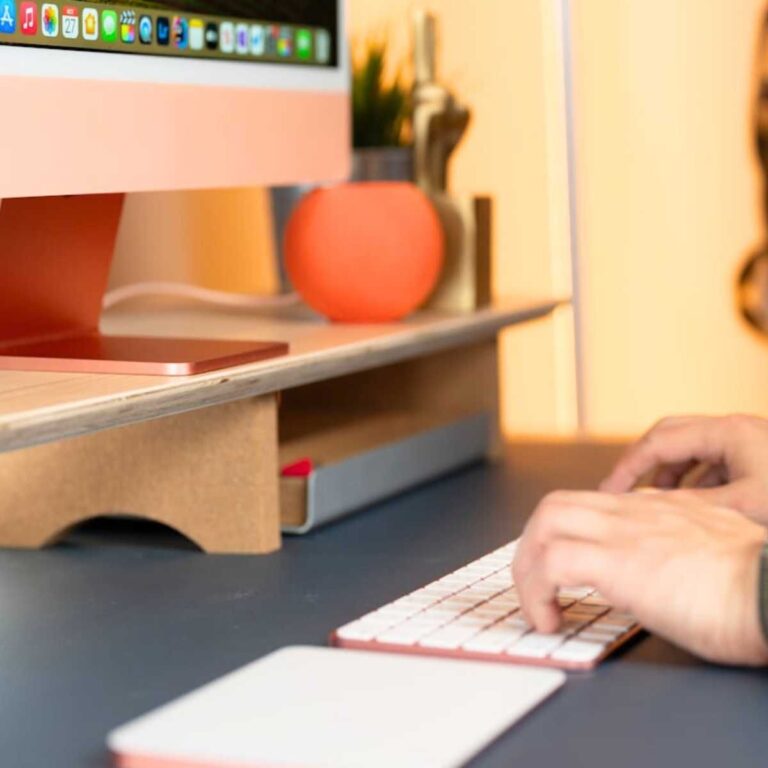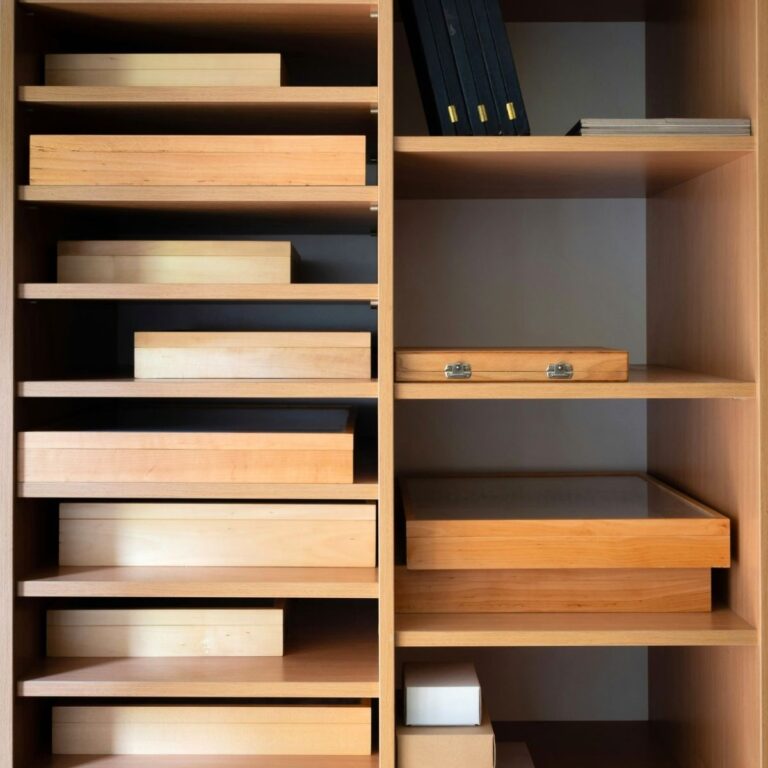How To Organize Important Papers at Home (That Anyone Can Do!)
Learn how to organize important papers at home in a few easy steps! Anyone can control their paper clutter, and keep their documents organized so they can easily find them later.
Keep important documents safe and control the paper clutter for better peace of mind, for easy access, or just for a cleaner office. This guide is designed ot be simple and practical for anyone, even if you’re starting with mountains of paper in front of you.
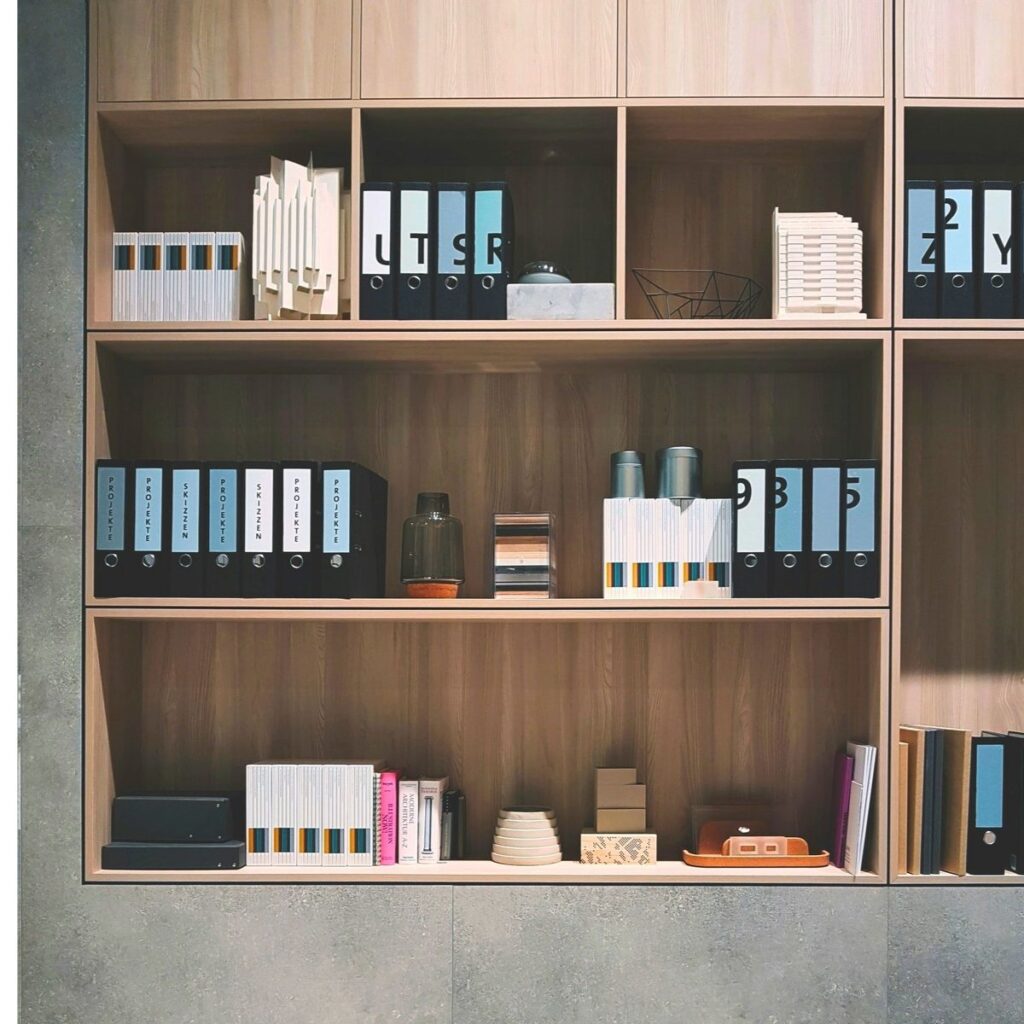
Gather All Important Documents
The first step to getting started is making sure you have everything you want to save in one place. Designate one area in your home – an office, a table, or a desk – as a sorting spot. You want enough room to sort and sift through what’s important, and a pile for discarded docs to be shredded.
What Are Examples of Important Papers?
While the definition of ‘important papers’ may vary for each household or for each person, here is a quick overview of types of documents you may want to keep on hand.
- Personal Identification – passports, birth certificates, and social security or social insurance documentation
- Financial documents – tax records, paystubs, copies of insurance policy documents, or bank statements
- Legal documents – wills, deeds, titles, or powers of attorney
- Medical records – perscriptions, or vaccination records
- Employment documents – like contracts or verification of employment
- School records – diplomas, transcripts, etc.
Sort Your Papers into Categories
Start by creating broad categories, like the ones listed above (financiel, legal, medical, household, etc.) and after reviewing each document, place it into one of the category piles. Starting with using categories can help you keep focused as you review each document. It can help create order and keep you from getting too overwhelmed.
You can use sticky notes, a sheet of printer paper, or an index card to label each pile as you sort to keep those papers going into the correct place.

Decide What to Keep and Discard
Decided what to get rid of is just as important as what to keep! Getting rid of outdated or unuseful papers can help reduce the clutter you have.
What to Keep
You should think of what household files and what to keep short-term vs. long-term. For example, tax returns should be kept for the last 7 years (especially helpful at tax time). But utility bills can be kept for only a year, then discarded.
What To Discard
I like placing my dicards into 2 piles: recycle and shred. Shred any and all documents that have personal information like your contact information, identification numbers, or anything that may be sensitive.
You can recycle any non-essentials that have no sensitive or personal information. Old newspaper clippings, copies of articles, old reciepts, or manuals for things you no longer own (like old appliances or electronics).
Create Your Filing System
There are lots of safe storage solutions for papers, all of which depend on how much space you have in your home, apartment, office, or room. You can use basic file boxes with folders, a filing cabinet, or accordian folders to stay organized!
Make sure you use clear and concise labeling too! While organizing papers is important, you want to make sure you can quickly find them again as needed.
Digital Vs Physical
Some documents (like reciepts, warranties, and bills) can be stored digitally. You can scan important papers using a desk or even a phone scanner and send them to yourself via secure email or a secure cloud storage system.
Safe Storage
You may want to invest in a fireproof safe as well to keep important documents(wills, birth certificates) at home. Or you could potentially hold a safety deposit box at a bank for off-site storage.
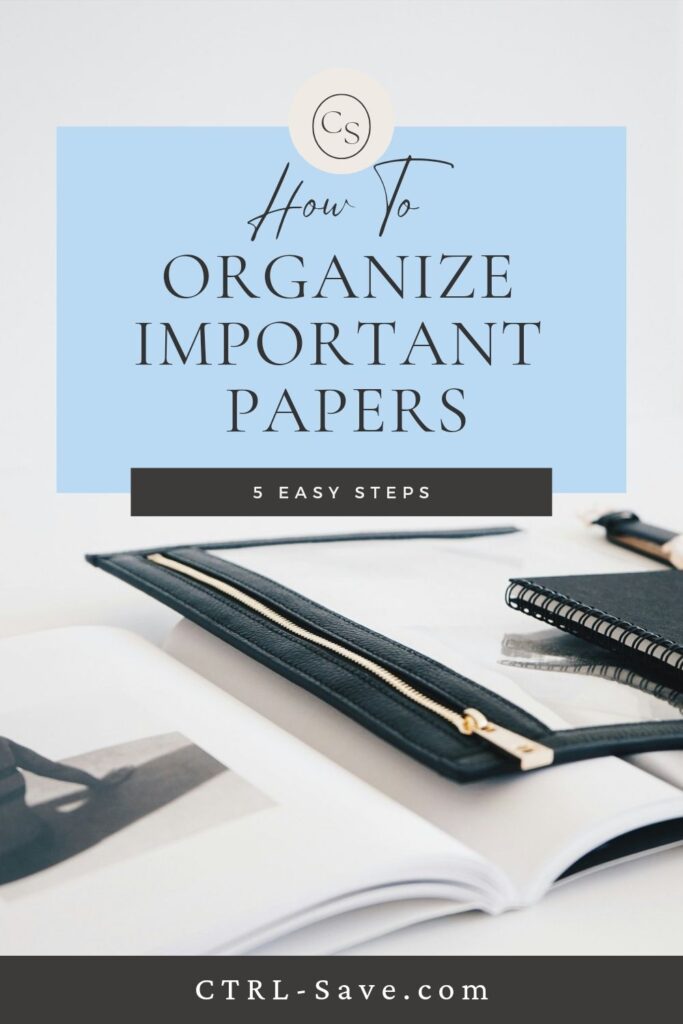
Regular Maintenance
Choose one day a month or even a quarter to review your file storage, and add any new documents as needed.
Keeping consistent records helps avoid clutter and will prevent you from losing or discarding important papers.
Start small and work step-by-step through this guide, and you’ll have a fantastic organization system in no time! You’ll save time and be more prepared!
Do you have tips for organizing important papers? Let us know in the comments below!

